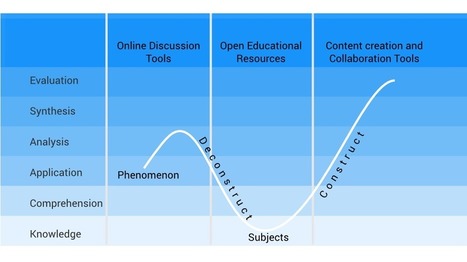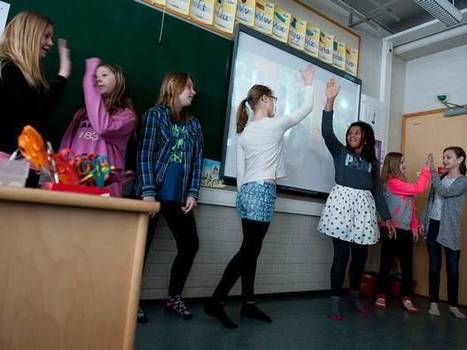The Blooms Taxonomy meant that the first step would be to seek knowledge, comprehend it, apply it in real life scenarios, analyze and further synthesize with other concepts and subjects. With Phenomenon Based Learning, this linear progression turns into a roller coaster ride.
The learner starts with a phenomenon or a real life scenario, analyses the linkages with different concepts and subjects, identifies the gaps in knowledge and understanding, seeks out that knowledge, comprehends it for each subject area and then synthesizes it. So essentially what was a process of construction has now been broken into deconstruction and then construction. First de-construct the phenomenon into different concepts and processes, understand them and then reconstruct them into the original phenomenon and probably draw parallels with other phenomenons.
Learn more / En savoir plus / Mehr erfahren:
http://www.scoop.it/t/21st-century-learning-and-teaching/?tag=Finland
http://www.scoop.it/t/21st-century-learning-and-teaching/?tag=Phenomenon+Based+Learning
Via Gust MEES



 Your new post is loading...
Your new post is loading...














Learn more / En savoir plus / Mehr erfahren:
http://www.scoop.it/t/21st-century-learning-and-teaching/?tag=Finland
http://www.scoop.it/t/21st-century-learning-and-teaching/?tag=Phenomenon+Based+Learning